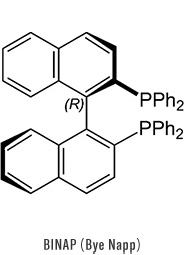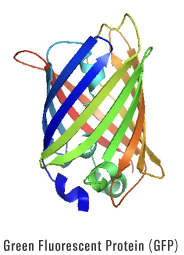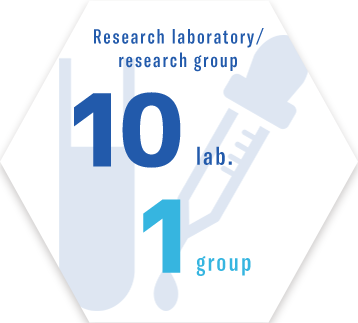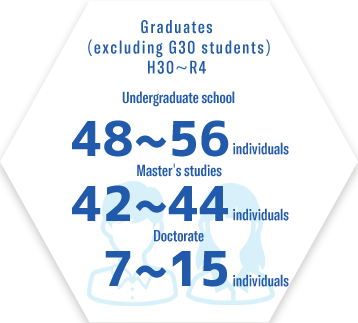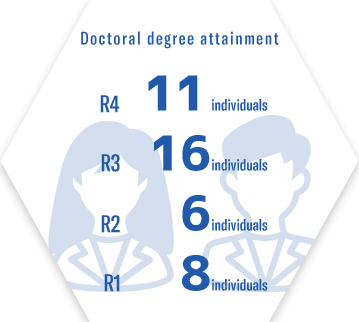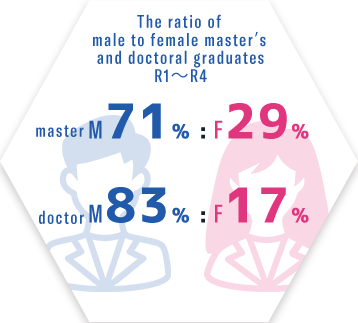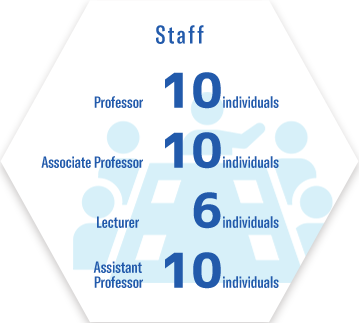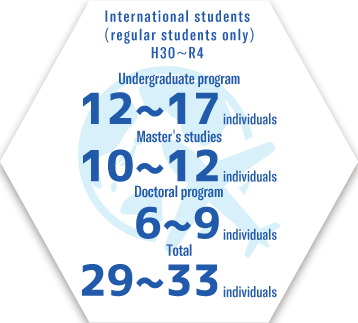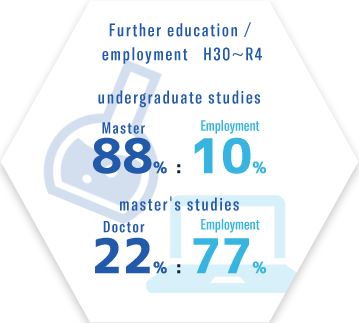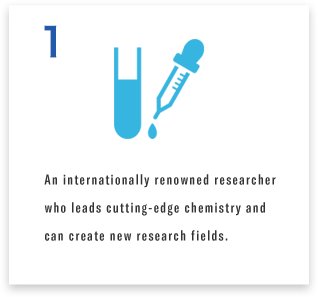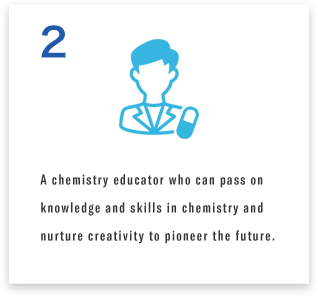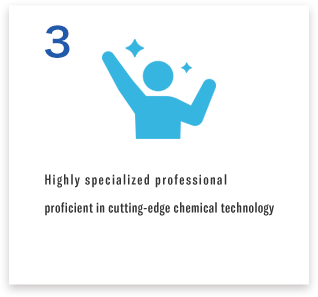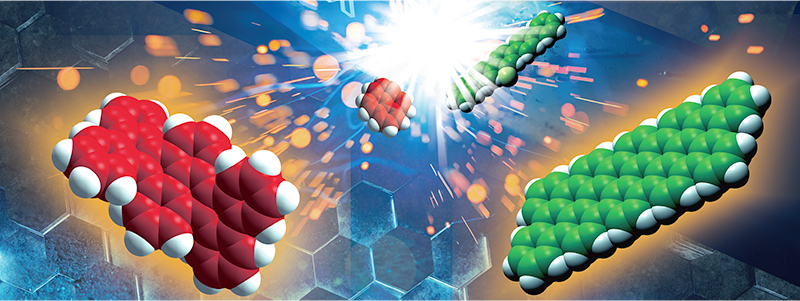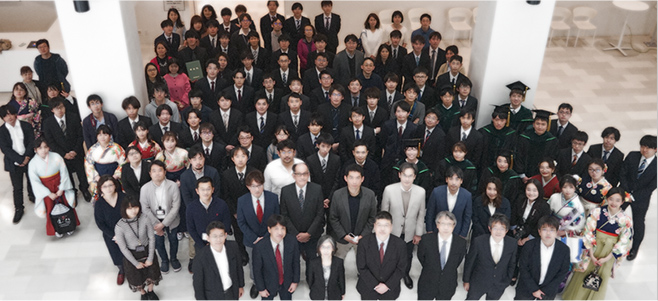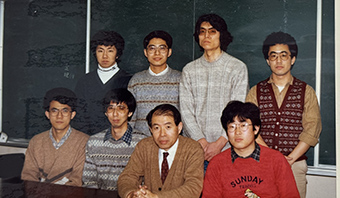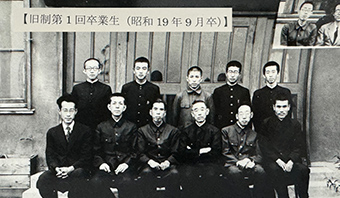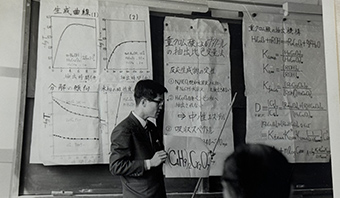Chemistry is often referred to as the ‘central science’ [1], bridging diverse fields of science. The Department of Chemistry at the Faculty of Science and Graduate School of Science at Nagoya University (hereinafter referred to as the Chemistry Department) conducts education and research spanning various scientific disciplines. Modern chemistry encompasses a wide academic field, including the creation and exploration of properties of compounds with new structures and physical properties, elucidation of the structure and reaction mechanisms of biomolecules, and synthesis of bioactive substances, expanding the horizons of both material and life sciences. The Chemistry Department has assembled researchers who are internationally active in their respective foundational fields as faculty members and has established a cutting-edge research and educational environment.

[1] T. L. Brown and H. Eugene, “Chemistry: The Central Science”
It’s a bit different from the image of chemistry we learn in high school, isn’t it?
You can scientifically study various substances by fully utilizing many foundational disciplines and technologies.
It seems like a wide and interesting world! Science has strong connections to our society, doesn’t it?
Understanding, creating, and controlling matter. That’s the power of chemistry! I hope you’ll enhance your problem-solving skills in the chemistry department and take on challenges!
The Chemistry Department primarily utilizes three splendid buildings, all located within the Higashiyama Campus and adjacent to each other. The research laboratories are housed within these buildings, providing a well-equipped research environment.
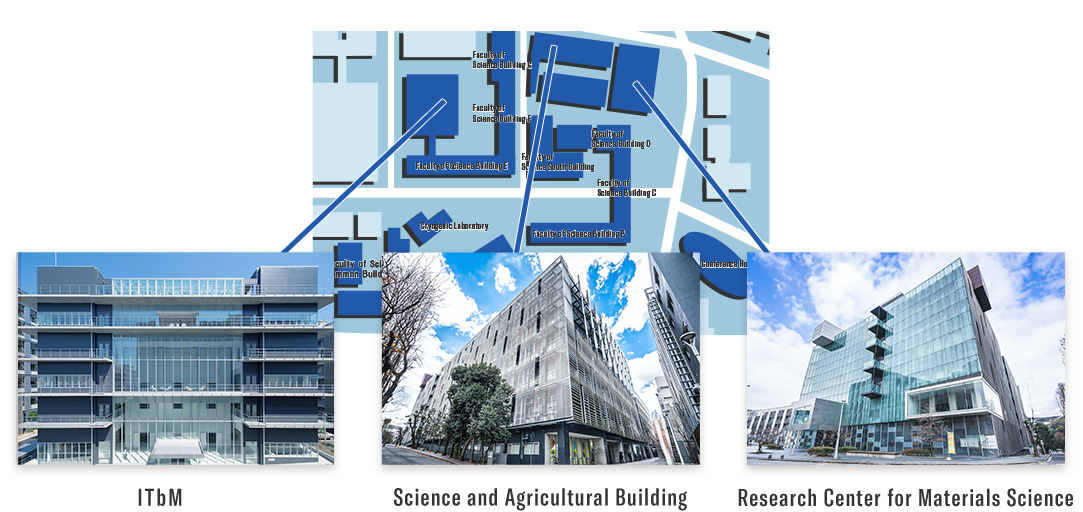
Completed in 2011, 6 stories

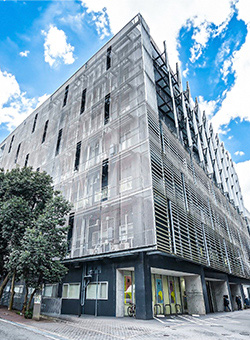
This is the flagship building of the Chemistry Department, housing six laboratories. It also includes the chemistry office and a student laboratory for third-year undergraduate students.
Completed in 2004, 7 stories

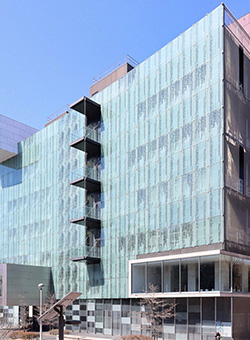
This is a research center commemorating Professor Ryoji Noyori’s Nobel Prize. It is a stylish building with a glass exterior and exposed concrete, capable of accommodating 120 people in its lecture hall. It also features a chemistry lounge for poster sessions and other events. Four laboratories of the Chemistry Department are housed here. It is used for graduation thesis presentations and research conferences.
Completed in 2015, 6 stories
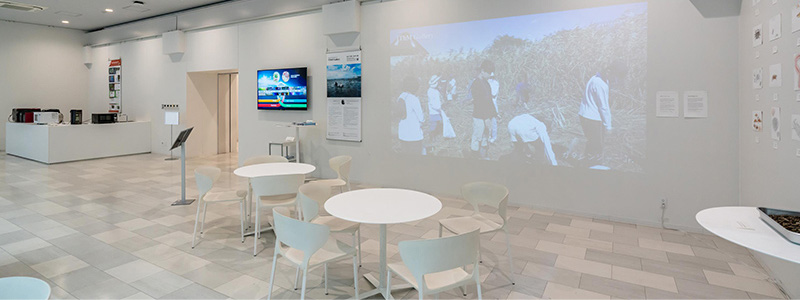
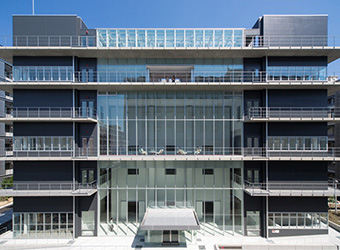
The Institute of Transformative Bio-Molecules (ITbM) was established at Nagoya University as one of the World Premier International Research Centers (WPI). It is the newest building among those related to the Chemistry Department. Serving as a stage for cutting-edge fusion research in synthetic chemistry and biology, it promotes world-class research. Three laboratories of the Chemistry Department are located here.
Chemistry is the science of substances. Human society and economic activities are built upon substances. Therefore, knowledge and technology in chemistry are inevitably related to the commitment to society. Furthermore, pursuing the forefront of science in university chemistry requires broad and deep foundational knowledge. This study allows for the development of high-level thinking and presentation skills. This foundational knowledge will be valuable throughout one’s life, enabling them to excel in various aspects. While continuous improvement is necessary, chemistry is a discipline that allows one to feel the depth, wonder, and achievement of material science, offering a wide range of intellectual stimulation.
In the Chemistry Department, there are many laboratories engaged in the interdisciplinary field of chemistry and biology, with various approaches. Chemistry is often called the central science, naturally leading to fusion research with other disciplines. If you were to enter our department, how about approaching the lecturers after class to listen to their talks? While challenging, reading research papers is the most detailed way to understand the research content.
Many laboratories in the Department of Chemistry are engaged in collaborative research with companies. The companies involved vary. In some cases, students may also participate in the research.
You can be assigned to a research laboratory starting from your fourth year. To advance to the fourth year, you need to complete the student experiments in your third year. You will receive basic training to conduct research safely and appropriately in the laboratory and learn how to summarize your findings in reports.
We do not focus solely on pharmaceuticals, but we study related subjects. In particular, organic chemistry, biochemistry, and computational science are crucial for drug development, and we offer related courses. Additionally, for graduation research and graduate school placements, there are laboratories researching the fundamental technologies of drug development and the development of compounds showing physiological activity. It’s also important to note that the pharmaceutical industry’s drug discovery business has evolved significantly. Drug development requires individuals with a high level of knowledge and skills at the doctoral level.
The Department of Chemical and Biological Engineering and the Department of Chemistry in the Faculty of Engineering, and the Department of Biological Science in the Faculty of Science, all focus on chemistry. However, while the Faculty of Engineering is divided into three fields of study and specialization, including organic chemistry, physical chemistry, and biochemistry, the Faculty of Science’s Department of Chemistry specializes in organic chemistry, inorganic chemistry, physical chemistry, and biochemistry within a single department.
You can confirm the differences in curriculum between the Department of Chemistry in the Faculty of Science and the chemistry-related departments in the Faculty of Engineering by checking the web sites.
The name of the department will not change your future job-hunting prospects.
I believe that the key to success lies in leveraging the favorable environment of the chemistry department to acquire and enhance knowledge, critical thinking, presentation skills, and problem-solving abilities at the undergraduate and graduate levels. This, I believe, determines one’s potential as an adult. It may not need to be emphasized again.
As far as I know, there are usually around two students each year who pursue careers in research and development at cosmetics companies. From what I’ve seen, it is possible to enter such positions from the Faculty of Science. Personally, I entered this department with the goal of entering the cosmetics industry since high school. Through my job hunting experience, I found that compared to pharmaceutical companies and chemical manufacturers, the number of positions in research and development at cosmetics companies is relatively small. However, both those who aspire to and actually enter the cosmetics industry represent a relatively small proportion of the Faculty of Science as a whole.
Responder: Second-year student
For the Department of Chemistry, the notion that “science is separate from society” does not apply, given the nature of chemistry as a discipline. Individuals with exceptional chemistry expertise, who can pursue truths and principles from a scientific perspective, are highly sought after by cutting-edge companies and startups. The path to academia and scholarly pursuits is also open. Of course, this applies to cases where individuals have immersed themselves in academic study and research.
Obtaining a doctoral degree signifies acquiring the ability to independently identify and conceptualize problems, conduct research for solving them, and present findings through thesis publication and presentations. It is a degree that indicates one’s capability rather than a mere qualification. By conducting research in their respective laboratories, students enhance their research skills and acquire the ability to become doctoral researchers and experts. Each laboratory provides education and training for this purpose. Students immerse themselves in research, savoring each page of progress, steadily building their own capabilities. Over five years of research, including the master’s program, they develop their abilities significantly. This gradual development is possible because of the enjoyment and fulfillment found in research, allowing students to immerse themselves in it. However, obtaining a doctoral degree marks the beginning of a researcher’s career. Subsequent career advancement requires continuous improvement, but having the skills in place enables one to progress further in their career.
In academia and industry today, there is a trend towards the increasing specialization and sophistication of knowledge and skills. Individuals with doctoral degrees, who can generate innovation, are thus becoming increasingly important and valuable. A doctoral degree is recognized worldwide. For example, it can open up opportunities to work as a postdoctoral researcher at research institutions abroad. In the corporate world, having a doctoral degree can be essential for those wishing to be involved in core research and development. Exceptional researchers who obtain a doctoral degree are highly sought after by companies looking to conduct cutting-edge research and development, and they are likely to become future leaders in their field. Recognizing the importance of nurturing doctoral researchers, chemistry departments are dedicated to providing a rich educational environment, pursuing budget acquisition, and engaging in innovative endeavors not seen elsewhere.
You can obtain a teaching license.
Faculty of Science: Science
Faculty of Engineering: Not applicable
Refer to the Nagoya University website for more information.
https://www.nagoya-u.ac.jp/admission/interest/license/
To understand the reality of the Chemistry Department, the best way is to answer questions from prospective students. Here, members of the Chemistry Department have provided answers to questions from high school students applying to our department.
In a nutshell, the education in this department is characterized by thorough small-group teaching. Although the department’s capacity is 50 students, there are 35 faculty members. In the fourth year, there is a year-long special experiment where students are assigned to each laboratory and receive guidance on experiments. During this time, faculty members strive to provide education that takes advantage of each student’s individuality, making it an easy-to-learn environment for motivated students. We take pride in the fact that this educational system contributes to the high social evaluation of our graduates.
In my third year, I had a lot of experimental work and writing reports was tough. However, since being assigned to a research laboratory in my fourth year, I have been able to study with peace of mind because the education and research guidance there prioritize autonomy.
Another feature of the Chemistry Department is that its research environment, facilities, and achievements exceed international standards in every aspect. I think it provides a favorable environment for students who want to delve deeply into the study of chemistry.
That’s a misunderstanding. In university lectures, fundamental concepts of chemistry, such as molecular structure, are introduced early on, which is quite different from high school chemistry. In any field today, you need to build your studies from theoretical foundations to progress. Even after entering university, studying a wide range of subjects including physics, mathematics, biology, and earth sciences, in addition to chemistry, is necessary.
In studying chemistry, it is important to experience various experiments, observe closely what is happening, and think deeply about it. This applies to all fields of natural science, but it is especially true for chemistry. I think that even in everyday phenomena, there is often significant scientific significance behind them. In chemistry, it is not uncommon to discover unexpected new facts or to come up with new ideas while conducting an experiment.
The Faculty of Science approaches research and education from the standpoint of laying the foundation of academic knowledge.
In today’s world where the “crisis of the global environment” is being seriously discussed, there is no doubt that broad-based fundamental research is important. Sometimes, we must question what is taken for granted. The warning about the dangers of “CFCs” arose from sharp insights based on diligent fundamental research. I believe that the role played by the Faculty of Science, which is responsible for fundamental research in chemistry, is significant for the advancement of academic knowledge.
Many students express a desire to continue their studies in chemistry because they want to pursue research and become researchers after graduation. To be honest, it can be difficult for some students to find the right path for themselves by the time they reach their fourth year of undergraduate studies. It is not uncommon for students to only realize their aptitude after entering graduate school, which I believe is a healthy process. At Nagoya University’s Faculty of Science, students are assigned to departments at the end of their first year. I encourage you to make decisions about your future path based on your own judgment, rather than being influenced by public opinion or external noise. It’s never too late to decide. Isn’t it a privilege of ‘youth’ to spend a considerable part of your life struggling with decisions? I hope you make decisions that you won’t regret later as you experience a significant part of your ‘youth’ for the first time. Regardless of the field you choose to specialize in, always remember that there is room to develop your abilities and potential.
In the Chemistry Department, there are professors, associate professors, lecturers, and assistant professors from the Department of Material and Life Chemistry in the Graduate School of Science, the Institute of Materials and Systems for Sustainability, the Institute of Transformative Bio-Molecules, and the Institute for Advanced Research in Materials Science, as well as graduate students (master’s and doctoral students) and research students, and undergraduate students (2nd to 4th year).
Education and research in various fields of chemistry are conducted by 10 laboratories and 1 research group of faculty members specializing in molecular and structural chemistry, inorganic chemistry, bioinorganic chemistry, organic chemistry, functional organic chemistry, special, bioorganic chemistry, photo physical chemistry, physical chemistry, and quantum chemistry.
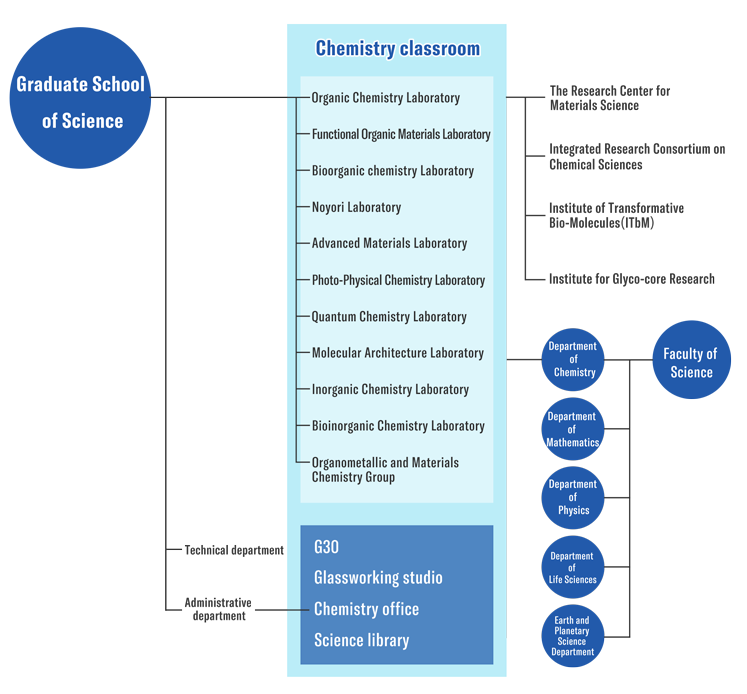
Each laboratory in the Chemistry Department is operated in close collaboration with the Institute of Materials and Systems for Sustainability and the Institute for Advanced Research in Materials Science, in both research and educational aspects. In addition, there are support organizations for the laboratories and groups, such as the Chemistry Office, the Science Library, the Glass Workshop, the Chemical Measurement Equipment Room, and the G30.
In the chemistry department, we conduct various education and research activities funded by external sources.
In the fiscal year 1998, the Chemistry Department led the establishment of the Center for International Research in Material Sciences. This center was founded with the aim of creating new materials and elucidating their functions. It conducts research activities primarily in five fields: organic material synthesis, inorganic material synthesis, material function research, life material research, and molecular catalysis research, with a focus on the chemical measurement equipment room.
link: https://www.rcms.nagoya-u.ac.jp/english/
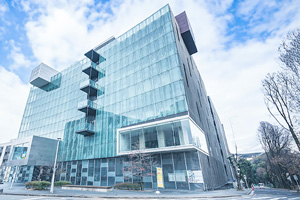

The Institute of Transformative Bio-Molecules (ITbM) was selected as a World Premier International Research Center Initiative (WPI) program in the fall of 2012 and launched as an international research hub. ITbM has established Mix Labs and Mix Offices, removing barriers between fields and laboratories, and researchers leading the world in the fields of synthetic chemistry, plant science, animal science, and theoretical science have come together under one roof with the slogan “Changing the World with Molecules”. They are working on interdisciplinary research beyond the boundaries of existing academic disciplines, aiming to create transformative life molecules that will greatly change our lives, and are excitedly engaging in research every day.
link: https://www.itbm.nagoya-u.ac.jp/en/
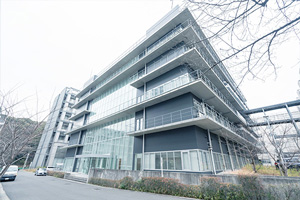
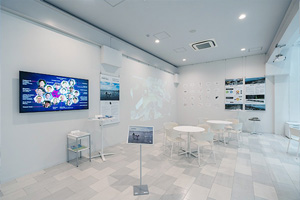
In the fiscal year 2022, a research organization was established with a focus on chemistry laboratories, collaborating across Hokkaido University, Kyoto University, Kyushu University, and Nagoya University, which has strengths in material creation chemistry. This organization includes research institutes from the four universities (Nagoya University Institute of Transformative Bio-Molecules, Hokkaido University Catalyst Science Research Center, Kyoto University Institute for Chemical Research International Center for Element Science, Kyushu University Institute for Advanced Materials Research) as its core, with a total of 120 researchers participating. Establishing such a large-scale, cross-university organization at one university is a first for Nagoya University. In addition to pioneering fusion frontiers and nurturing young talent, it also has a social contribution aspect of returning the results to related fields and industries through collaboration.
link: https://irccs.nagoya-u.ac.jp/
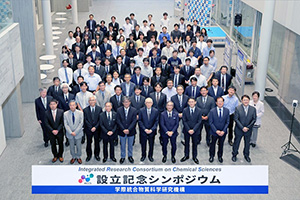
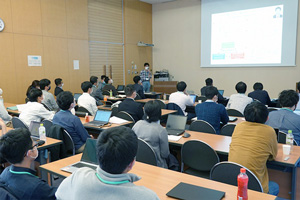
For the sustainable development of society, there are many challenges to overcome, such as solving environmental and energy issues, ensuring stable food production, material creation leading to industrial technological innovation, and life sciences contributing to health. The role of chemistry and life science research is becoming increasingly important. To make breakthroughs in these challenges faced by society and science, it is necessary not only to advance research in each field but also to pioneer fusion areas between different fields and open up new horizons. The Transformative Chemistry/Life Fusion Research Graduate Program (GTR) aims to cultivate researchers who can “pioneer fusion frontiers and create future knowledge” in the fields of chemistry and life sciences through a five-year integrated doctoral degree program. In addition to covering a wide range of basic and advanced coursework, the program includes English training, various seminars, retreat camps, and other activities to develop advanced expertise, broad knowledge, and comprehensive research skills necessary to advance research. As a unique initiative, it proposes fusion research projects and provides a platform for realizing true research breakthroughs by conducting them in interdisciplinary environments under the guidance of mentors from different fields.
link: https://www.itbm.nagoya-u.ac.jp/gtr/en/
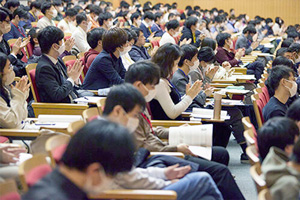
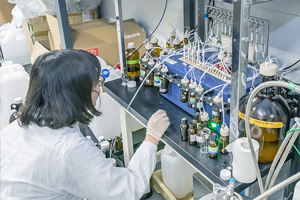
Glass Workshop (Graduate School of Science, Technical Section)
The Glass Workshop manufactures original instruments and devices tailored to research objectives that cannot be achieved with general items such as beakers, flasks, and test tubes through close communication with researchers. Additionally, it conducts glass practical training for third-year chemistry students and summer glass practical training for young researchers to contribute to education on acquiring basic knowledge about glass. The glass processing technology is top-notch nationwide, supporting education and research at Nagoya University, including the chemistry department, based on various technical exchanges and information exchanges.
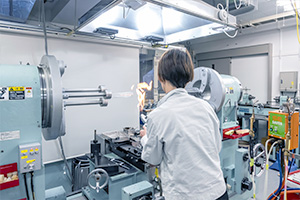
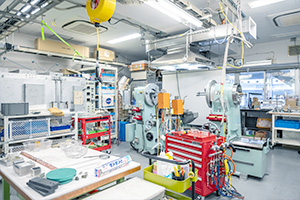
Science Library (Graduate School of Science, Administrative Section)
As a branch of the Nagoya University Library, the Science Library focuses on collecting and managing electronic journals, books, and other materials related to science. It provides a wide range of books not only for research but also for students’ studies, including textbooks and reference books. Additionally, it offers evening hours to improve convenience for faculty, staff, and students.

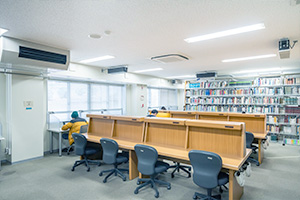
The research laboratories in the Chemistry Department aim to educate and cultivate individuals with intellectual curiosity to unravel the principles of substances and nature, as well as with the ability to explore new materials and properties and elucidate the principles of nature through innovative thinking and flexible reasoning. Our educational goal is to nurture individuals with a wide range of knowledge in natural sciences, as well as specialized foundational knowledge, research execution capabilities, and research dissemination skills in various fields of chemistry.

